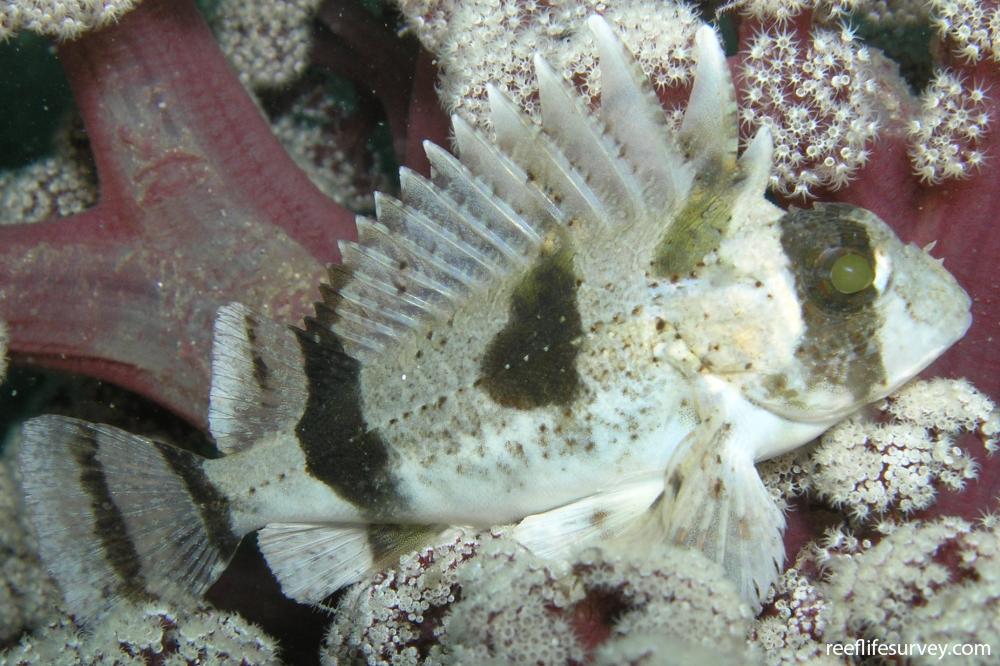Centropogon australis
Eastern fortescueSimilar Species
Distribution
Temperate Australasia
Description
Relatively small species with pale body and dark black bars when adult and mottled colour pattern while juvenile. It is well known to most prawn fishermen because of the painful sting inflicted by its venomous dorsal spines. A closely related species, the western fortescue Centropogon latifrons, occurs in southern Western Australia in much the same habitat but is less common.
Information
Max Size: 15 cm
Sea Temperature Range: 15.5-26.1°C
Depth: 0-30m
Habitat Generalization Index: N/A
Also referred to as the SGI (Species Generalisation Index), this describes the habitat niche breadth of the species. Species with values less than 15 are found in a relatively narrow range of reef habitat types (specialists), while those over 25 may be found on most hard substrates within their range (generalists). Learn more here.
Conservation and Rarity
IUCN Status: Not Evaluated
Occurrence: Infrequent (8.2% of sites)
Occurrence describes how often the species is found on surveys within its distribution. It is calculated as the % of reef sites surveyed by RLS divers across all the ecoregions in which the species has been observed
Abundance: Several (8 per transect)
Abundance is calculated as the average number of individuals recorded per RLS transect, where present.
Edit by: GJ Edgar. 2008. Australian Marine Life. New Holland, Sydney










